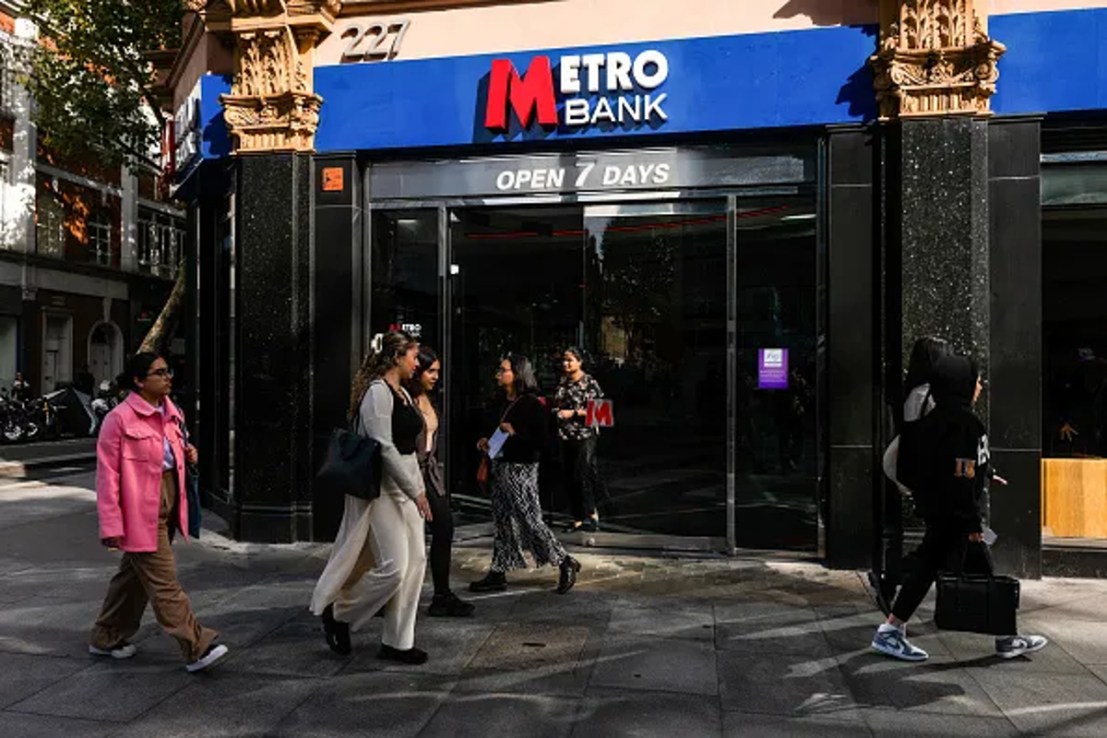
Metro Bank more than trebled its profit in the first six months of the year as its transformation strategy gained pace.
The high street lender recorded an underlying profit before tax of £45m, compared with £12.8m in the second half of 2024.
Revenue grew 22 per cent to £286m whilst operating costs fell eight per cent year-on-year to £234.7m.
The bank recorded a record £1bn in new corporate lending for the half, twice the amount originated in the same period last year.
This comes as the firm continues its pivot from retail banking towards specialist lending with a target of small- and medium-sized enterprises.
The bank’s net interest margin – a key metric indicating a firm’s profitability from lending – rose to 2.87 per cent, a steep jump from 1.64 per cent in the first half of 2024.
This was driven by an improvement to the average interest rate a bank earns on its loans, rising to 5.67 per cent, and lower costs of deposits.
Metro’s CET1 ratio, which is the core capital a bank holds to absorb losses and protect depositors, remained strong at 12.8 per cent.
Metro to benefit from regulatory reform
The lender is also expected to benefit greatly from the changes to the MREL regime announced in Rachel Reeves regulatory reforms at Mansion House.
Metro said it expects to be “reclassified as a transfer firm” and thus there was “no current plans to raise future MREL” meaning the lender will have a more flexible balance sheet with costs slashed.
Introduced in the fallout of the 2008 financial crisis, minimum requirement for own funds and eligible liabilities (MREL) rules dictate strict tailored requirements for banks possessing assets between £15-25bn. The Bank of England is set to hike the threshold following consultation.
Daniel Frumkin, chief executive officer at Metro Bank, said: “Metro Bank’s strong performance in the first half of the year reflects the successful execution of our strategy and decisive actions we have taken.
“We trebled profits, doubled new lending to corporate, commercial and SME customers, meaningfully reduced operating costs and optimised funding to have the lowest cost of deposits of any UK high street bank.”
In a trading statement in May, Metro said it had recorded a “significant increase” in quarter one profit against the second half of 2024.
The lender said it was “confident” in full-year targets after shifting into more income-generating assets and optimising deposits with less interest.
The firm had pivoted towards specialist mortgages and the ripe area of small business lending in the last year.
Metro offloaded its personal loan portfolio for £584m at the end of 2024 to an unknown buyer in a deal that generated £11m in gains.
The bank was the subject of takeover interest earlier this year after Sky News reported the private equity owners of Shawbrook bank approached Metro regarding acquisition.
Shares in Metro Bank have jumped by some 200 per cent over the last year after it nearly collapsed before it was rescued through a £925 bailout, partly financed by Colombian billionaire and now majority owner Jaime Gilinski Bacal and £600m of new debt.







